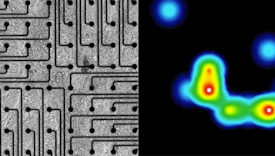
Tingting Wang completed her graduate work in the laboratory of Michael Ehlers at Duke University. During her graduate training, Wang sought to understand how the elaborated dendritic structures and compartmentalized glutamate receptor distributions are formed in hippocampal neurons. She demonstrated that nascent receptor cargo rapidly diffuse in the continuous network of the dendritic endoplasmic reticulum (ER) but are confined by increased spatial ER complexity at dendritic branch points and near dendritic spines allowing highly restricted local export of newly synthesized proteins.
As a postdoctoral fellow with Graeme Davis at the University of California, San Francisco, Wang combined gene identification in Drosophila with electrophysiological and imaging techniques to assess the molecular basis of homeostatic modulation of synaptic function, identifying some of the very first genes and intercellular signaling molecules that are necessary for the long-term stabilization of neural function.
More recently, Wang discovered that the epigenetic regulation of gene expression in glia is indispensable for the homeostatic regulation of neurotransmitter release. Wang’s laboratory is currently focused on using the power of gene discovery in Drosophila and then translating this knowledge to the study of homologous genes in vertebrate central and peripheral nervous systems to understand the molecular basis of neurodevelopmental disorders, including autism.

